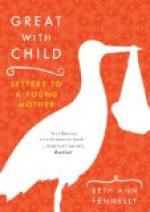Next to bread made of wheat—when that cannot be procured—is a mixture of wheat and Indian meal; but the proportion of the latter should be the smallest. Wheat, rye, and Indian, in the proportion of one third of each, make excellent bread, sometimes called third bread. Rye and Indian make a tolerable bread. Rye alone is not so good. The want, in the latter, of the vegetable principle called gluten, makes its general use of very questionable propriety.
Indian meal alone, baked in cakes by the fire, if eaten only in small quantities, is a very nutritious and by no means unwholesome bread. But its sweetness, and the general fondness which people who are accustomed to its use have for it, lead them to eat it in too large proportions, if they use it while it is warm. In these circumstances, it proves itself too active for the stomach and bowels. If warm, six ounces is as much as a hearty adult ought to eat of it at once; and children should of course take much less. It is less active on the bowels, and scarcely less agreeable, as soon as we become accustomed to it, if eaten when it is cold—even if baked in loaves, in the oven.
Potatoes, added to unbolted wheat flour, make excellent bread; and so, as I am informed, does rice. Of the latter, however, I have never eaten. Oats and barley, and many other grains and substances, will make bread; but it is of an inferior kind.
The question may again recur, after this extended series of remarks, whether I intend to confine the young almost exclusively to bread, in one or another of its forms. We shall see how this is, presently.
While bread, therefore, should constitute a part, at least, and sometimes the whole of a meal, a great variety of other articles are not only admissible, but desirable. Among these may be mentioned plain puddings.
One of the most wholesome puddings is made of Indian meal, enclosed in a bag and boiled. Nearly allied to this is the common hasty pudding; but the last is less wholesome, because it requires less chewing; and it ought to have been observed, before now, that after weaning, any food is digested better which has undergone the process of thorough mastication.
Boiled rice, though hardly to be regarded as a pudding, is very nutritious, and very easy of digestion. I am not without doubts, however, in regard to the utility of a large proportion of rice, as food. A dinner of it, two or three times a week, I believe to be wholesome; but used too frequently, it seems to me not active enough for the stomach and bowels; having in this respect precisely a contrary effect to that of warm Indian cakes. The common notion that rice has a tendency to make people blind, is entirely unfounded. Its worst effect is when eaten without being boiled through. In such cases, I have known it to do mischief; perhaps because it was swallowed without much chewing. Some grind it, and use the flour; but I cannot recommend it to be used in this manner.




